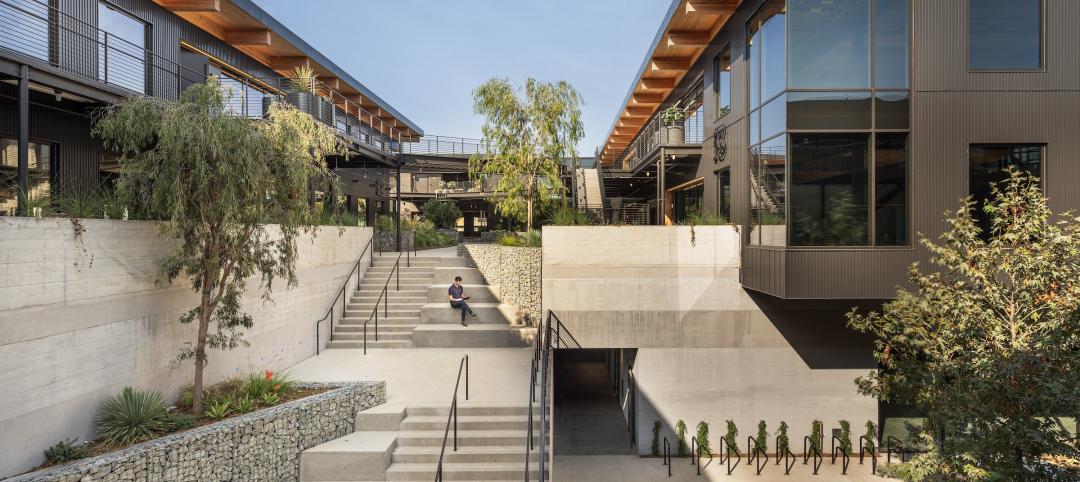PORTLAND, Ore. – Demand for the services of commissioning professionals is rising and will continue to rise into the near future, according to a survey by PECI and the Building Commissioning Association (BCA).
The numbers tell the story of an industry experiencing growth as a result of the increasing popularity of buildings that earn green certifications. In addition, the commissioning industry expects the adoption of more ambitious building and energy codes nationwide to further amplify demand. Together, these factors have created a need for training services that will expand the commissioning workforce and allow the industry to effectively meet these new, rising needs.
We asked attendees of the BCA’s National Conference on Building Commissioning (NCBC) to assess their professional experiences in a variety of areas, including: current motivators for commissioning work; expected changes to the commissioning industry as a result of new building codes; and training needs. The survey revealed that:
· 72 percent of respondents, mostly commissioning professionals, have experienced more demand for new building commissioning services in the past year.
· 69 percent have experienced more demand for existing building commissioning in the past year.
· Green building certifications like LEED® and ENERGYSTAR are significant motivators for commissioning, according to 68 percent of those surveyed.
· Green certifications are followed closely by corporate environmental goals, which were cited as motivators by 64 percent of respondents.
· 56 percent expect changes to building and energy codes to drive an additional increase in demand for commissioning.
· The rising demand has created a need for training industry wide; 68 percent cited a need for training on specialty systems like building enclosures and renewables.
· In order to adapt to new building codes and rising demand, respondents anticipate a need for increased training and certification and the deployment of larger teams with broader skill sets.
Read a more detailed summary of the survey findings here.
The survey findings support the recent creation of a comprehensive Commissioning Authority Training program, which PECIand the BCA developed in tandem and launched this spring. Read more about the curriculum at learn.peci.org.
The findings also correlate with the results of this year’s BCA Leadership Conference, where 71 commissioning authorities representing 66 U.S. and Canadian firms planned the association’s roadmap in strategic areas of education, best practices, certification, codes and standards and international development.
PECI and the BCA have supported the positive evolution of the commissioning industry for decades. PECI helped pioneer commissioning processes and best practices and remains a leader in the development of commissioning programs, research and tools. “PECI’s mission has always aligned exactly with the mission of the commissioning industry,” said Dan Reese, PECISenior Program Manager. “This survey was our latest effort to stay informed and serve the industry as best we can.”
“The BCA helps members and their organizations meet challenges and changes as they arise within the commissioning profession. We worked with PECI to develop this survey and a training program that will help produce outstanding new commissioning professionals and also deepen the knowledge and skills of existing ones,” said Liz Fischer, Executive Director. “Our job is to make sure the industry is ready to embrace the increasing demand and thrive.”
About PECI
PECI is a leader in the field of energy efficiency solutions, with expertise in designing and delivering programs for utility and government agency clients. Through sustained market and customer engagement, PECI achieves persistent energy savings and reaches millions of residential, commercial and industrial customers. A nonprofit corporation dedicated to creating the new energy economy, PECI was founded in 1980 and has offices in Portland, Oregon as well as Northern and Southern California. To learn more visit www.peci.org.
About BCA
The Building Commissioning Association is an international non-profit organization that serves as the recognized authority and resource on commissioning. Our membership is made up of professionals from the commercial building industry who are dedicated to using and maintaining the highest standards and practices in the commissioning process. The mission of the BCAis to guide the building commissioning industry by advancing best practices, education and promoting the benefits of commissioning to design and construct buildings that work. Learn more at www.bcxa.org.
Related Stories
Codes and Standards | Sep 17, 2024
New California building code encourages, but does not mandate heat pumps
New California homes are more likely to have all-electric appliances starting in 2026 after the state’s energy regulators approved new state building standards. The new building code will encourage installation of heat pumps without actually banning gas heating.
Codes and Standards | Sep 17, 2024
ASHRAE’s first group of certified decarbonization professionals announced
ASHRAE recently announced its inaugural cohort of Certified Decarbonization Professionals (CDPs). Individuals who earned this designation demonstrate competency to assess, analyze, and develop effective and sustainable strategies to reduce or eliminate the life-cycle carbon footprint of buildings.
Mass Timber | Sep 17, 2024
Marina del Rey mixed-use development is L.A.’s largest mass timber project
An office-retail project in Marina del Rey is Los Angeles’ largest mass timber project to date. Encompassing about 3 acres, the 42XX campus consists of three low-rise buildings that seamlessly connect with exterior walkways and stairways. The development provides 151,000 sf of office space and 1,500 sf of retail space.
Education Facilities | Sep 16, 2024
Hot classrooms, playgrounds spur K-12 school districts to go beyond AC for cooling
With hotter weather occurring during the school year, school districts are turning to cooling strategies to complement air conditioning. Reflective playgrounds and roads, cool roofs and window films, shade structures and conversion of asphalt surfaces to a natural state are all being tried in various regions of the country.
3D Printing | Sep 13, 2024
Swiss researchers develop robotic additive manufacturing method that uses earth-based materials—and not cement
Researchers at ETH Zurich, a university in Switzerland, have developed a new robotic additive manufacturing method to help make the construction industry more sustainable. Unlike concrete 3D printing, the process does not require cement.
Adaptive Reuse | Sep 12, 2024
White paper on office-to-residential conversions released by IAPMO
IAPMO has published a new white paper titled “Adaptive Reuse: Converting Offices to Multi-Residential Family,” a comprehensive analysis of addressing housing shortages through the conversion of office spaces into residential units.
Office Buildings | Sep 6, 2024
Fact sheet outlines benefits, challenges of thermal energy storage for commercial buildings
A U.S. Dept. of Energy document discusses the benefits and challenges of thermal energy storage for commercial buildings. The document explains how the various types of thermal energy storage technologies work, where their installation is most beneficial, and some practical considerations around installations.
Office Buildings | Sep 5, 2024
Office space downsizing trend appears to be past peak
The office downsizing trend may be past its peak, according to a CBRE survey of 225 companies with offices in the U.S., Canada, and Latin America. Just 37% of companies plan to shrink their office space this year compared to 57% last year, the survey found.
Codes and Standards | Sep 3, 2024
Atlanta aims to crack down on blighted properties with new tax
A new Atlanta law is intended to crack down on absentee landlords including commercial property owners and clean up neglected properties. The “Blight Tax” allows city officials to put levies on blighted property owners up to 25 times higher than current millage rates.
Resiliency | Sep 3, 2024
Phius introduces retrofit standard for more resilient buildings
Phius recently released, REVIVE 2024, a retrofit standard for more resilient buildings. The standard focuses on resilience against grid outages by ensuring structures remain habitable for at least a week during extreme weather events.

















